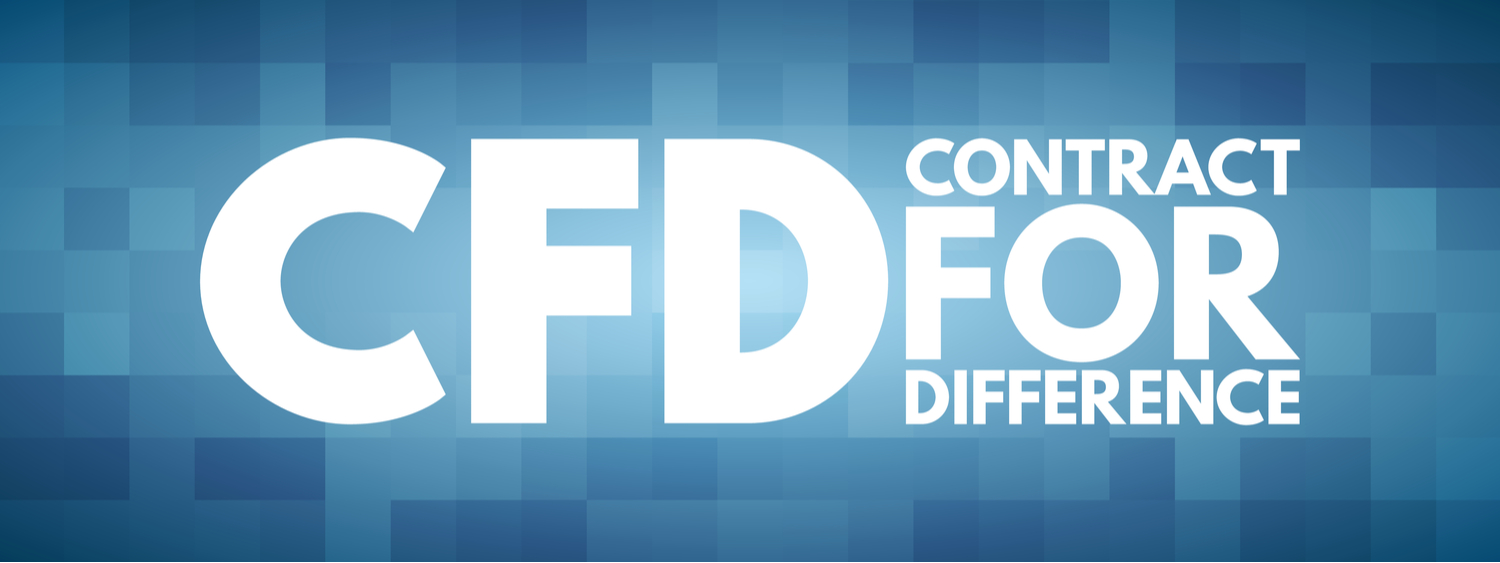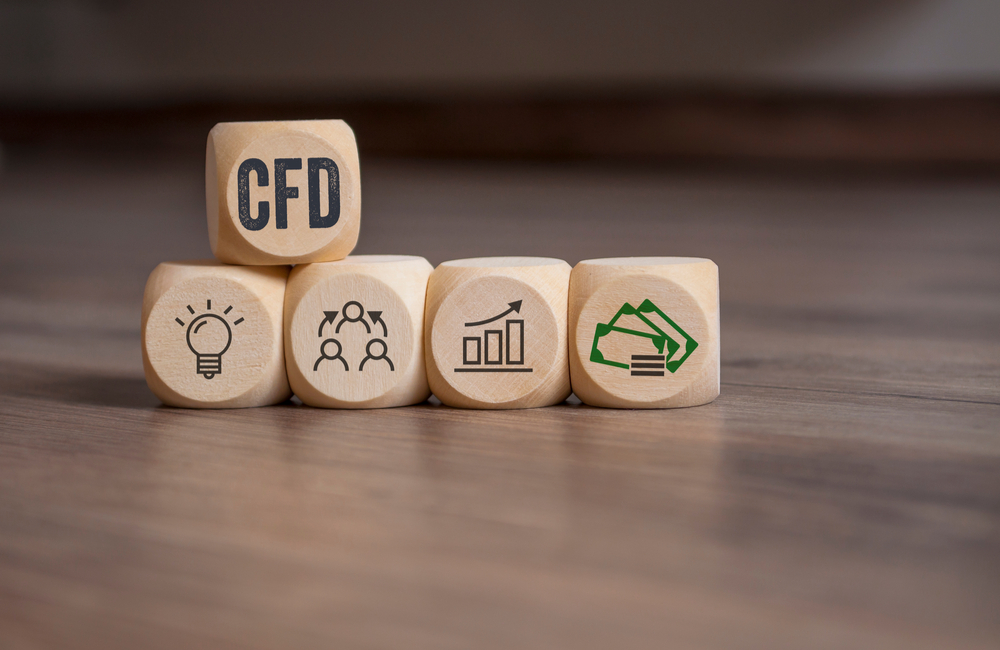
What is a CFD?
A CFD (contract for difference) is a popular financial derivative product that allows investors to trade the price changes of different financial assets. A CFD contract is basically an agreement to pay the difference between the opening and closing prices of an underlying asset. As an investor, you will earn profits if your prediction on the price direction movement is right (the broker will pay you the difference); and you will incur losses if your prediction on the price direction movement is wrong (you will pay the broker the difference).
What is CFD Trading?
CFD trading is, in essence, speculating on the price changes of an underlying asset. If you believe the prices of an asset will rise, you will buy the asset or simply go long; if you believe the prices of the underlying asset will fall, you will sell the asset or simply go short. The profits or losses you incur will depend on the difference between the opening and closing prices, as well as the size of the trade position.
How Does CFD Trading work?
When you buy a CFD contract, you do not own the underlying asset – you simply speculate on its price movement. CFDs can be traded on leverage, meaning that traders only need to stake a small amount (margin) so as to control a much larger position in the market. For instance, if a broker offers leverage of 100:1, one will need a margin amount of $1,000 to control a trade position worth $100,000 in the market. At Bluesky Brokerage we offer a leverage of up to on CFD trading.
Leverage allows investors to spread their capital and to earn magnified profits using just a small capital amount. But it must be noted that leverage is a double-edged sword; large losses can also be incurred on trades that go against your prediction. CFD prices are usually quoted in a pair: bid and ask prices. The bid price is the highest price a buyer is prepared to pay, whereas the ask price represents the lowest price a seller will accept.
The difference between the bid and ask prices is known as ‘the spread’, and it represents the cost of trading a CFD. The spread is usually a negligible amount compared to the value of a trade position. At Bluesky Brokerage spreads can be as low as 0.01% (even lower) of the overall trade position.
In addition to spreads, traders can also incur additional charges when they leave trading positions overnight. This is known as a rollover fee or swap. This is a fee that a broker applies for you to continue holding a leveraged position in the market past active daily trading hours. It is essentially an overnight funding fee. Spreads and rollovers are the only CFD trading costs on the Bluesky Brokerageplatforms; there are no other hidden fees or commissions.
What Can be Traded as CFDs?
CFDs can be traded for literally any financial asset that has a price value attached to it. This is because you are under no obligation to own the underlying asset – you are only trading its price changes.
At Bluesky Brokerage we offer CFDs for:
-
Currency Pairs
Trade the exchange rates of major, minor and exotic currency pairs from all around the world. -
Stocks
Stocks (also known as shares) are units of ownership of companies. Stocks are traditionally bought and sold on stock exchanges, but when traded as CFDs, you can go long or go short, and you do not need to own the underlying shares. -
Commodities
Commodities are important goods in international trade. The various types of commodity futures available for trading in financial markets include metals, energies, agriculture, as well as livestock, and more. -
Indices
Indices are weighted statistical measures that track the performance of a selected basket of stocks. The stocks can be related by industry, market sector, stock exchange, or even country. -
ETFs
ETFs (Exchange Traded Funds) are a type of investment fund, similar to mutual funds, but are traded on stock exchanges. ETFs hold assets such as stocks, bonds, and commodities. -
Cryptocurrencies
Cryptocurrencies are a form of digital money. They have quickly evolved to become digital stores of value and represent a new and exciting financial asset class. -
Bonds
Bonds are units of debt issued by governments and corporations. They are securitised and are publicly traded.
Start trading CFDs with Bluesky Brokerage
Enjoy the benefits of an award-winning broker today!
CFD Trading Methods
There are various trading strategies that are often used when trading CFDs, that even the most unskilled trader can understand. These decisions involve a number of trading methods and the most popular is the Long vs Short.
-
Long Position
A long position in trading CFDs is when a trader places a BUY trade. This means he expects the asset will rise or see an increase in its value over time. He will effectively BUY at a low price, and then SELL once the price rises. -
Short Position
The short position occurs when the trader feels there will be a decline in the assets value and a ‘sell’ is selected, however, there is an intention from the trader to buy the contract back at a later stage. So he would profit from selling the asset at a higher price and then buying it back once the price has fallen. This might seem more of a complicated idea to grasp, but it comes naturally with practice. It also means that unlike when buying stocks you can trade CFDs even when markets are falling. This is a huge benefit to CFDs. - Hedging – CFDs are an effective tool for hedging. Hedging is a strategy that involves opening trade positions designed to offset losses generated by another prevailing position in a portfolio. For instance, if you own shares of Facebook as an investor, you will earn profits if prices rise. However, if prices fall, you will incur losses. To hedge against that, you can open a short CFD position for the stock. The CFD trade will generate profits that will offset losses incurred by the other investment when Facebook stock prices fall.
Start trading CFDs with a regulated broker at Bluesky Brokeragetoday!
Why Trade CFDs with Bluesky Brokerage?
Take your pick from a huge selection of Commodities, Stocks and Indices with some really competitive conditions and dedicated support.
- A selection of powerful trading platforms, including MetaTrader 4 and MetaTrader 5 platforms for desktop, tablet & mobile
- Cutting-edge Web trading platform (no download and installation required)
- Trade leading US, European & Asian stocks trade as CFDs
- Go long or short – trade your view on the market
- Get leverage of up to on CFD trading
- Trade on the move with our new BSBGO app with unique risk-limiting tool BSBProtect
- Both manual and automated trading platforms available
What are the Advantages of CFDs?
-
No Exchange fees
You do not own the underlying asset and do not acquire any rights or obligations in relation to the underlying asset. It is a contract between the client and Bluesky Brokerage and you pay no commission. -
Leverage trading
You need significantly less capital to open a trade in comparison to owning the underlying asset. Leverage is a double-edged sword, of course, as it can significantly increase your losses as well as your gains. -
Multi-vehicle Investment
The ability to trade a range of instruments from the same trading platform. -
Trade on both rising and falling markets
Open either short or long positions according to the market conditions and your trading strategy. -
Hedging potential
A buffer for your trades if the trade is not going in the intended direction, you can open the equivalent position in the opposite direction reduce the risks.
What are the Disadvantages of CFDs?
Price volatility and leverage, as well as the practical application of hedging, have made CFD trading a lucrative and functional arena for many investors to trade their favourite financial assets online. But this is not without some risks.
Leverage – To start with, leverage is a double-edged sword, as mentioned earlier. It can amplify profits on trades that move in your favour, but it can also magnify losses on trades that go against you. Because losses are calculated based on the leveraged amount, there is the threat of a margin call. This is a situation where the broker will require an investor to deposit additional funds to cover losing positions in the market or will close out the losing position to protect trader’s balance from going into the negative zone.
Volatility – CFD trading also faces volatility risk in the market. In periods of high volatility in the market, such as during economic news releases, the costs of trading can increase in the form of wider spreads. Paying massive spreads hinders short-term trading strategies and decreases profit margins on all new trade positions.
Other recommended guides:
- How to trade gold online
- How to trade bitcoin
- How to trade cryptocurrency
Infographic: What are CFDs
Click on image for full infographic.
Start trading CFDs with a regulated broker at BSB today!
Still not entirely sure? Take a look at the BSB Reviews by our clients!



